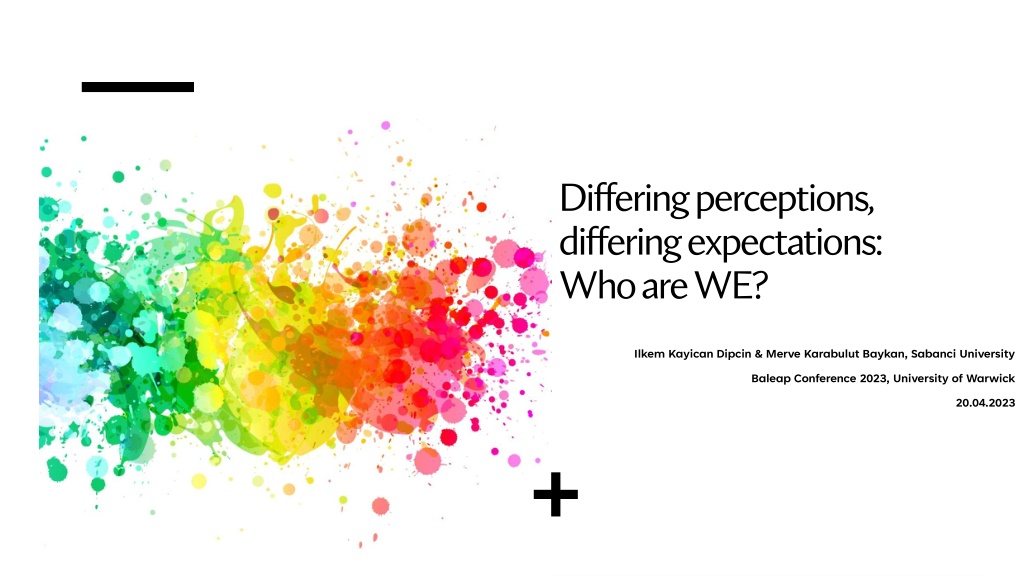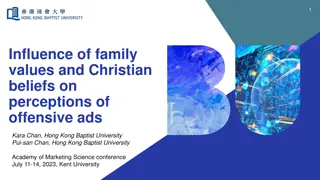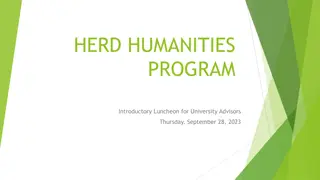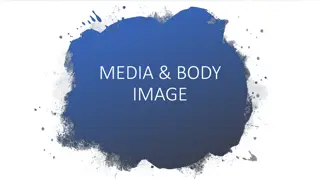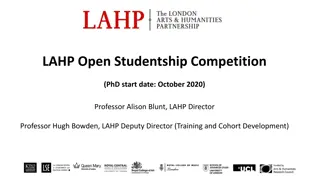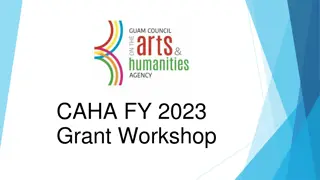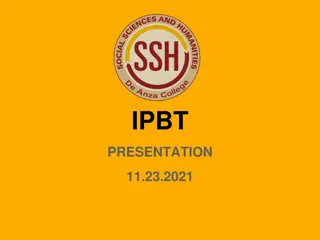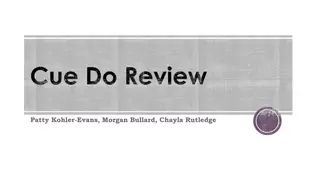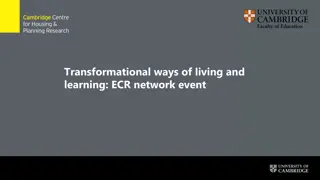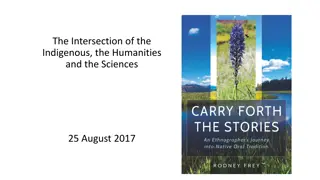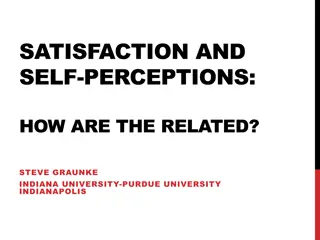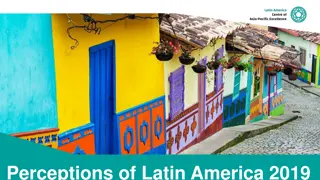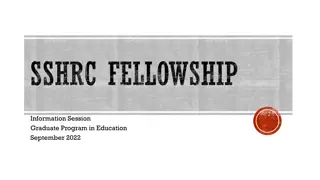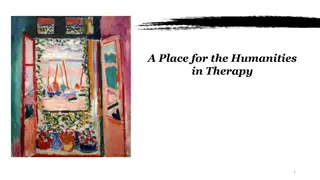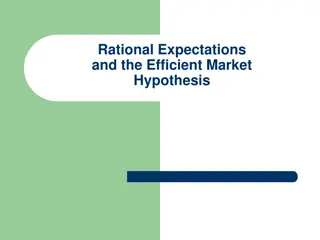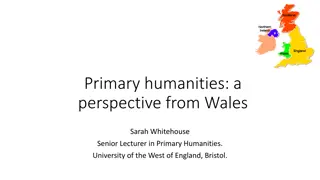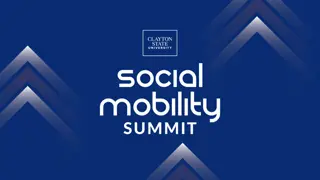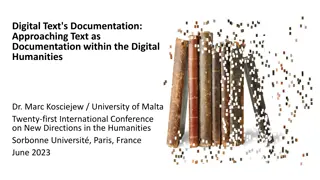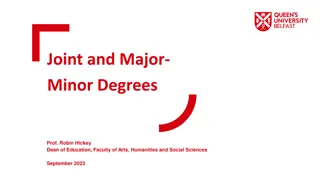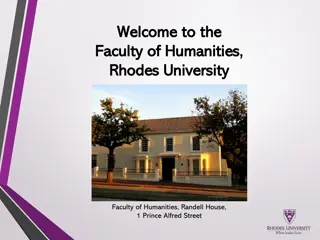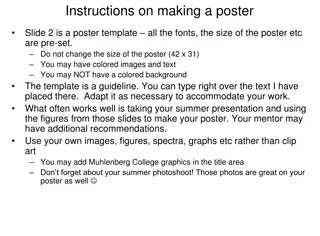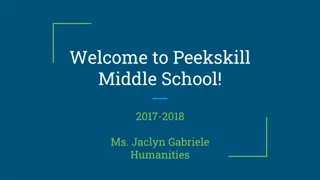Exploring Differing Perceptions and Expectations in Humanities Education
Sabanci University's present research delves into the varying roles associated with service-learning facilitators within humanities courses, involving faculty members, EAP Instructors, graduate students, and undergraduates. Through surveys and interviews, significant insights have been gathered regarding the identity definition, responsibilities, and professional attributes of SL facilitators. Multiple stakeholders within the academic spectrum contribute to this study, aiming to comprehend and enhance the dynamics of learning facilitation in higher education.
Download Presentation

Please find below an Image/Link to download the presentation.
The content on the website is provided AS IS for your information and personal use only. It may not be sold, licensed, or shared on other websites without obtaining consent from the author. Download presentation by click this link. If you encounter any issues during the download, it is possible that the publisher has removed the file from their server.
E N D
Presentation Transcript
Differing perceptions, differing expectations: Who are WE? Ilkem Kayican Dipcin & Merve Karabulut Baykan, Sabanci University Baleap Conference 2023, University of Warwick 20.04.2023
What are we going to do here today? Explain where we are coming from Go over the research Share the results those that stand out / Look at the results together & discuss what they unveil Give you a quick questionnaire? / Quick literature review Discussion
Context SPS 101&102 ( Society & Humanity) common core curriculum courses Components of Input: Lectures & Discussion Sections (Recitations) Lectures: Course Instructors (Hist & POLS) Discussion Sections (Recitations): Interdisciplinary Co-Teaching (Grad Sts & EAP Instructors)
Organizational Diagram Course Director Course Coordinators Course Instructors EAP Instructors & Grad Students
OUR RESEARCH Context: Humanities course with multiple stakeholders: Faculty members, EAP Instructors, Graduate students Survey & Interviews started in 2020 (Online survey & Individual Zoom interviews) 76 students/ 5 EAP instructors/ 7 Graduate students/ 5 Faculty members Questions: What roles(s) would you most readily associate with the responsibility of SL facilitators? How would you describe the EAP/ SL facilitator role within academia? How do you think SL facilitators define their identity (including professional roles, responsibilities and qualifications) within the course?
MINI POLL Think of your experience so far and please indicate top 3 roles that you identify with teaching EAP Voting code: 6125 7923
Online Survey Questions (Students) What do you consider to be the main roles of SPS- SL facilitators? Rank the following in order of importance, from 10 (most) to 1 (least). Teacher (Academic skills and language) Teacher (Course content) Feedback Provider Administrator Tutor Examiner/grader Mentor Researcher Assessor of academic integrity
Roles; as they are perceived by our students, colleagues (FASS coordinators & facilitators) and us (SL facilitators) STUDENTS (27) FASS COORDINATORS (3) FASS FACILITATORS (GRADUATE STUDENTS -TAs of the course) (8) SL COORDINATORS (EAP Instructors) (7) The MOST FREQUENT ROLE after ALL the Teaching Roles Feedback Provider Assessor of academic Integrity / Examiner Feedback Provider Feedback Provider LEAST FREQUENT Researcher / Administrator Researcher Mentor / Administrator Course designer /Administrator
Interview Results- Labels
Common themes- I EAP Instructors- Perceptions Ambiguity of our position within academia Assumptions stemming from different understandings about the value of a PhD; Issue of recognition: mixed results Acknowledgement of pedagogical perspective and experience teaching writing/academic skills Lack of official status within institutional structure may influence core team perception of us Capacity to design/teach/evaluate content-related material underestimated and excluded from decision- making Course Instructors don t really seem to take our own research interests/project seriously Different perceptions between SL and FASS core team as to what constitutes personal closeness in tutor role Condition of equality
Common themes- II Course Coordinators & Instructors Graduate Students (Co-teachers) Language/writing/academic skills teacher (pedagogical perspective) Academic English Instructors / Teachers of academic writing/academic skills Pedagogical perspective Grading, designing rubrics, creating content, peer teaching (involved in the other roles but not primarily) Experience Position of EAP practitioners valuable within broader context of academic for integrating language with research/content Asking/ receiving help (Organizer/ class mom) *Teaching ethics of learning and writing in an academic environment Acknowledge importance of SL facilitators having at least some social sciences background One-on-one interaction with students
In search of an identity: Metaphors Butler stance - Raimes- 1991 Third space- Whitchurch (2008) Multiple personality disorder (Ilkem & Merve) Juggler
Butlerstance-Raimes-1991 Within institutions, EAP practitioners adopting the butler stance are expected to adopt the identity of skilled technicians whose work supports the larger enterprise of the university in terms of language competence development, but they are not required to engage intellectually with the larger, collective knowledge-building role of the university, such as in theory development or in undertaking research that relates to the curriculum and pedagogy of their subject According to Raimes, the butler stance designation is predicated on the assumption that writing courses (such as EAP courses) are service courses, in the service of the larger community ... [a view that] positions language and composition courses outside of academia, with no academic process of their own (p. 243)
Third space-Whitchurch(2008) Whitchurch (2008) describes the third space in higher education contexts as one which exists between the traditional binary of an academic domain and an administrative or management domain that supports this (p. 378) Third space professionals exist in different contexts across the university and have mixed identities: they straddle the professional and academic domains in that they are not faculty members, whose work traditionally includes research, teaching, and third-leg functions, nor are they strictly administrators supporting the academic domain.
Multiple personality disorder Juggler/ Plate Spinner
DISCUSSION 1. Can you think of similar identifications that are prevalent in your own institution? 2. Do you think the way we are perceived has anything to do the with the following? Professional development: command over EAP theories Academic development; degrees; MA, Phd Experience The current political, social, economic forces Transitioning from being a TESOL to EAP teacher PADLET: https://padlet.com/ilkem/baleap-2023- differing-perceptions-differing-expectations- who-p0wnyphd6h65c5x6
ISSUES 1 2 3 4 Hierarchy Whether EAP is a research- informed academic subject or a peripheral support service? Persona and role inside & outside the classroom Recognition for scholarly efforts?
